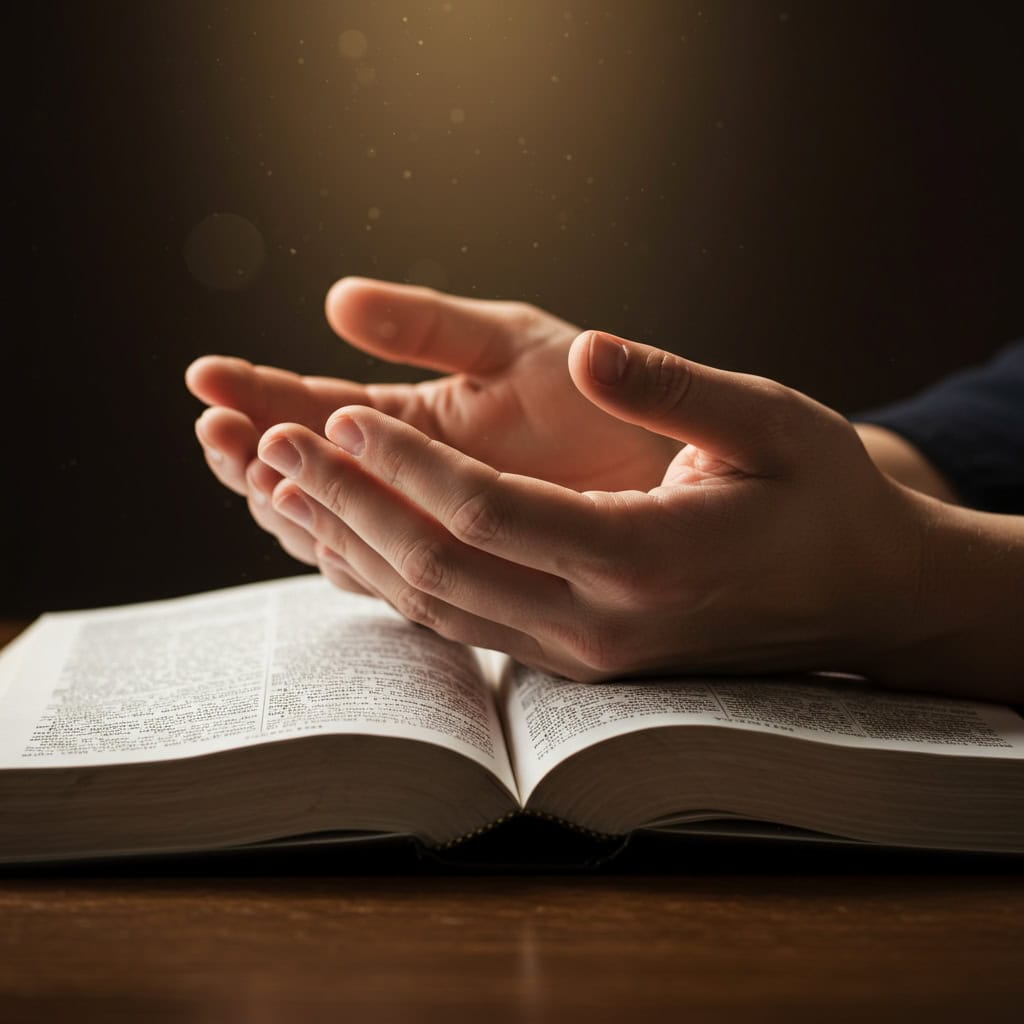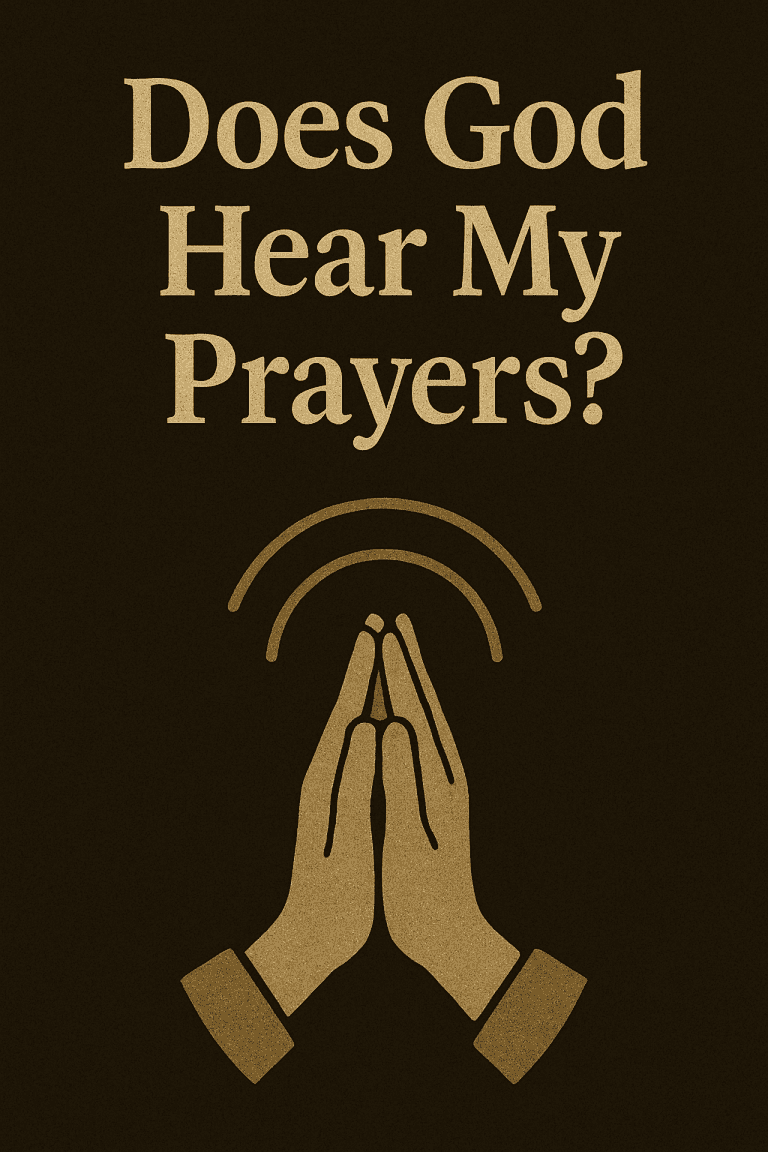Does God’s Election Cancel Free Will?
Does God’s election cancel free will — or does it finally make our choices matter?
That question has divided believers for centuries because it touches something most of us hold sacred: the sense that we can decide. We want to believe God is in control, but we still want a say in how life unfolds.

I wrestled with that tension for years. I wanted the comfort of God’s sovereignty without the discomfort of surrender. It wasn’t until I stopped trying to protect my freedom that I began to understand how Scripture talks about His. The Bible never pits them against each other. It simply tells the truth — that God chooses and we choose, and both are real.
So does God’s election cancel free will? The Bible’s answer is both simpler and deeper than we expect. It doesn’t erase choice; it explains why any of us ever choose Him in the first place.
What the Bible Means by God’s Sovereign Election
Before we talk about free will, we have to understand what the Bible means by election. It isn’t a cold doctrine meant for argument. It’s a warm one meant for worship.
Paul writes that God chose us in Christ before the foundation of the world (Ephesians 1:4). Election means salvation begins with God’s initiative, not our intelligence or goodness. It’s grace in motion — God setting His love on people who never would have reached for Him on their own.
Does God’s election cancel free will if He chose before creation? Not at all. It shows that His purpose was never reactionary. He didn’t look ahead to see who might pick Him and then agree with their choice. He loved first, acted first, and drew us toward a decision we could never have made apart from His mercy.
When I first heard the word elect, I thought it sounded unfair — as if God were playing favorites. But over time I realized something sobering: if fairness ruled salvation, no one would be saved. Election doesn’t make salvation smaller; it makes grace bigger.
(See also God’s sovereign grace in salvation.)
A Brief Look Back
This tension isn’t new. The early church wrestled over the same issue when Pelagius taught that man could choose good without divine help. Augustine answered that grace doesn’t assist a neutral will — it awakens a dead one.
Centuries later, Luther said in The Bondage of the Will that freedom apart from grace isn’t freedom at all; it’s slavery dressed up as independence. The Reformers weren’t inventing a new idea — they were reclaiming the biblical one: that we are saved by grace through faith, and even that faith is God’s gift.
Salvation begins and ends with His initiative, leaving no room for our boasting and every reason for our gratitude. When I understood this, it was a huge relief. God saved me – I didn’t save myself. If I saved myself, I could lose my salvation. The Bible says that’s impossible (John 6).
Where Free Will Actually Fits in Scripture
The Bible never denies human will. It just describes what kind of will we have.
We make real decisions every day:
- what to believe
- how to act
- whom to trust
But Scripture says our natural will is enslaved to sin. Everyone who sins is a slave to sin (John 8:34). Left alone, we freely choose what we desire, but those desires are bent away from God.
That’s why verses like Choose this day whom you will serve (Joshua 24:15) or I have set before you life and death — choose life (Deuteronomy 30:19) still matter. God’s sovereignty and free will aren’t opposites. They’re part of the same story: He commands us to choose, and He grants the grace that makes obedience possible.
Does God’s election cancel free will in the way people fear it does? No. It doesn’t turn believers into puppets; it restores their ability to love what’s good – something that was lost when Adam and Eve sinned in Eden.
I remember thinking, “If God controls everything, why try?” Then I noticed how Scripture never excuses passivity. It holds me responsible precisely because my choices are real. God’s election doesn’t erase my role; it restores it. By awakening a dead heart, He makes genuine obedience possible. This is so important to understand. It’s not what you’ve lost, but what you’ve gained!
Two Truths the Bible Holds Together

The tension between divine control and human choice isn’t a modern problem. Scripture never tries to untangle it — it simply presents both as true.
When Joseph stood before the brothers who betrayed him, he said, “You meant evil against me, but God meant it for good” (Genesis 50:20). Two meanings. Two wills. One outcome that served God’s purpose.
The same pattern appears at the cross. “This Jesus, delivered up according to the definite plan and foreknowledge of God, you crucified and killed” (Acts 2:23). The most evil act in history was freely done by men — and perfectly ordained by God.
That’s not contradiction. It’s mystery that humbles the proud. Free will vs God’s sovereignty is a fight the Bible never picks. To us they may seem like two lines running apart, but in God’s wisdom they perfectly converge.
I remember the moment that truth finally settled. I stopped trying to choose between verses and started believing both. The Bible doesn’t give me a system to master — it gives me a Savior to trust.
And through it all, the question keeps returning — does God’s election cancel free will? The more we see His wisdom, the clearer it becomes: sovereignty and choice live under the same roof.
Why Election Makes Our Choices Matter
If anything, election makes our choices more significant, not less.
Without God’s call, no one would choose Him at all — there is none who seeks God (Romans 3:11). But because He calls, our response carries eternal weight. Grace doesn’t cancel responsibility; it makes it possible.
Think of Lydia in Acts 16:14. She listened to Paul, and the Lord opened her heart to pay attention to what was said. God worked within her hearing so her decision would be both free and certain.
Does God’s election cancel free will? No — His election gives our choices their deepest meaning. We obey because He enables; we believe because He awakens.
When I finally saw that, I quit treating faith like a personal achievement. Once I understood that God opened my heart, I stopped crediting my wisdom for believing. Election didn’t make me passive; it made me thankful.
And that’s the real beauty of sovereignty. Every act of obedience becomes an echo of grace already at work.
(See also real faith proves belief through obedience.)
A Practical Picture
If election were mechanical, the apostle Paul would have stayed home.

Yet he preached in city after city, beaten and imprisoned, because he believed “I endure everything for the sake of the elect, that they also may obtain the salvation that is in Christ Jesus” (2 Timothy 2:10).
He didn’t preach in spite of election but because of it. God’s choosing guaranteed that some would respond. That confidence turned doctrine into courage.
Common Objections People Still Raise
Even after seeing what Scripture says, some questions remain — and they’re fair.
- “Doesn’t this make us robots?”
No. Robots act without desire; believers act with transformed desire. Grace doesn’t erase personality — it redeems it. - “Why pray if God already knows?”
Because prayer is one of the means He ordained to accomplish His will. We ask precisely because we trust He listens and acts. - “How can God blame anyone if He’s in control?”
That’s Paul’s question in Romans 9:19–21 — and his answer is simple: the Creator has the right to govern creation. Our inability to explain His mind doesn’t cancel His justice.
Each of these questions points back to humility. We don’t need all the answers to trust the One who made both will and salvation.
How to Rest in Both: Trust and Obey
If God is sovereign, why strive? Because His sovereignty is the only reason striving matters.
Paul says, “Work out your salvation with fear and trembling, for it is God who works in you” (Philippians 2:12-13). The command and the comfort stand together.
When I pray, I’m trusting that God moves hearts. When I share the gospel, I believe He’s already drawing someone to hear. My effort is the instrument; His will is the power behind it.
The more I trusted God’s control, the freer I felt to obey. It’s no longer a contest between His purpose and mine — it’s a partnership, and it’s all of grace.
The Wrap Up!

So does God’s election cancel free will?
No. It redeems it. It takes a will enslaved to sin and sets it free to love what’s good. God’s sovereign election doesn’t make us puppets; it makes us worshipers — people whose choices finally align with truth.
Election isn’t the end of decision; it’s the miracle that makes decision possible.
Next in this series: If God Already Chose, Why Preach the Gospel?
Walt Roderick is a Christian writer who cares more about biblical clarity than online applause. He writes to strengthen believers and confront spiritual drift.






